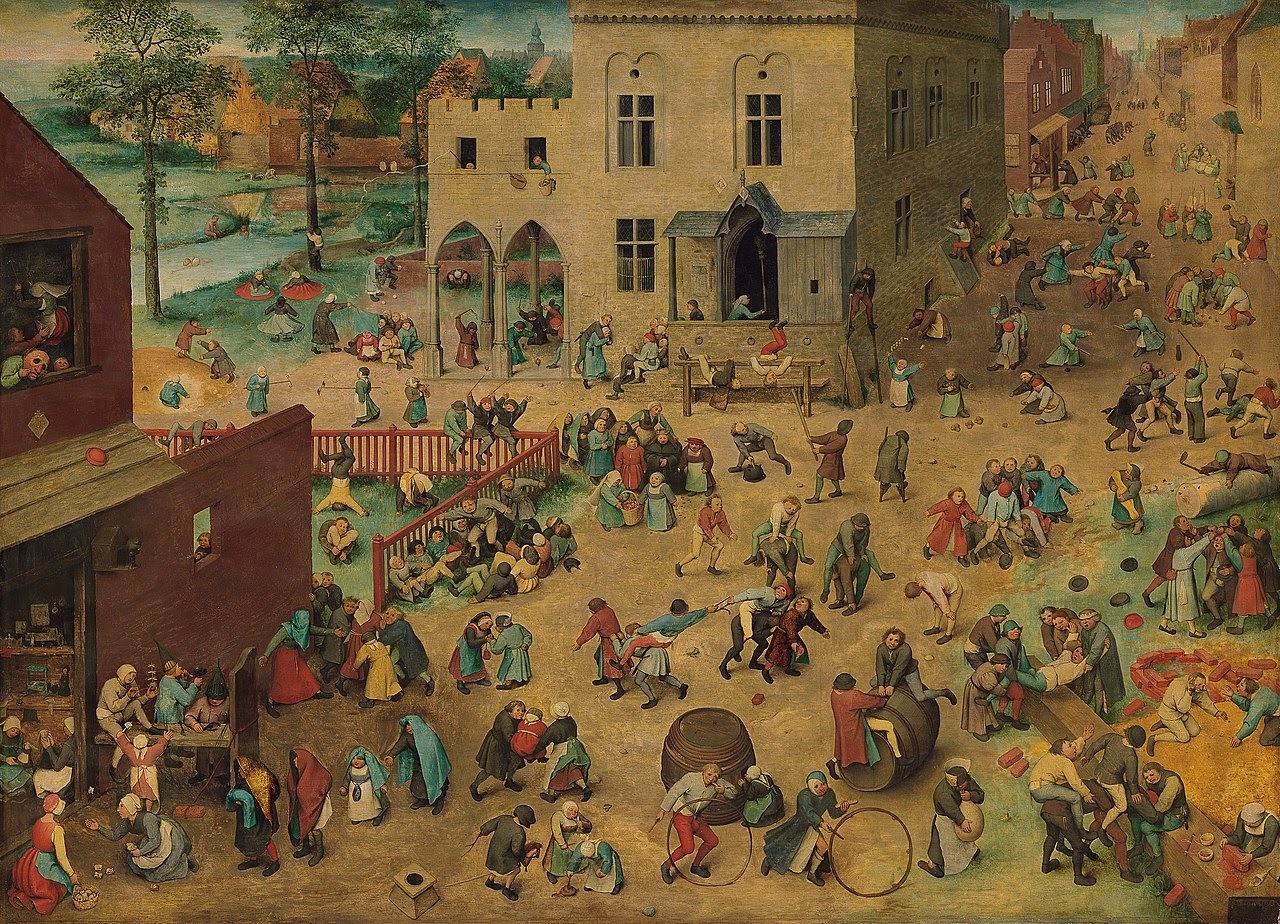The Importance of Play
Plato once said, “Our children from their earliest years must take part in all the more lawful forms of play, for if they are not surrounded with such an atmosphere they can never grow up to be well conducted and virtuous citizens.” He also advocated for 'play sanctuaries' for 3 to 6-year olds 2,400 years ago. He proposed that these play sanctuaries would be places where children would come together to discover spontaneously the games which come naturally to them.
Weet Weet or throwing the playing stick is an Aboriginal throwing game that has been popular in parts of Australia and originates from long traditions in indigenous communities.

The Dutch Renaissance artist, Pieter Bruegel the Elder depicts a medieval village in the 1560 painting 'Children’s Games', displaying children and adolescents playing games. There have been at least 80 games, sports and toys identified in the painting, including dolls, bowling, swimming, marbles and a swing amongst many other forms of play.
The 19th-century German educator, Friedrich Fróbel who started the first kindergarten, or 'gardens for children', wrote, “Play, then, is the highest expression of human development in childhood, for it alone is the free expression of what is in a child’s soul.”
In more modern times, paediatrician Michael Rich, who leads the 'More Play Today' has collated the latest research, facts and experiments to provide help for parents and teachers on how to increase time and quality of children’s play at home and in school. He states that the evidence shows that “play helps kids’ brains and bodies develop, and helps them learn how to get along with others.”
Play is important in the development and growth of children and adolescents, formal and informal, guided and free are all important forms of play. Eighty five percent of parents say kids today spend less time playing than they did when they were their children’s age. According to the LEGO Play Well Report 2018, 1 in 5 children say they are too busy to play.
Play is integral to a child’s education and helps their creativity, collaboration, communication, problem-solving, cooperation, sharing and negotiating, to become lifelong learners.
At Avondale School, we are developing a learning framework focusing on the deep learning competencies of Character, Citizenship, Communication, Collaboration, Creativity and Critical Thinking. Play is one avenue in providing our children with the opportunity to develop skills that they will need and use throughout their lives.
Mr Nathan Hill
Head of Primary Campus
Type on the line above then press the Enter/Return key to submit a new search query